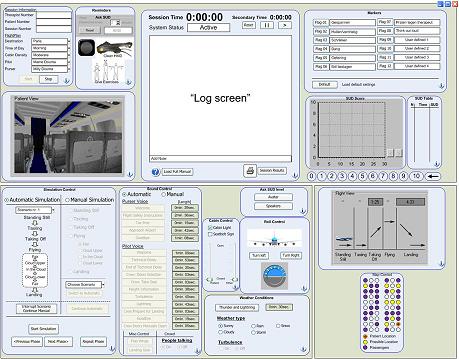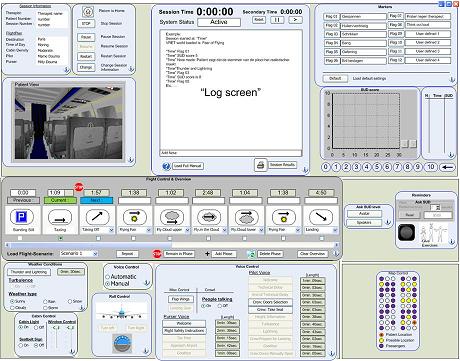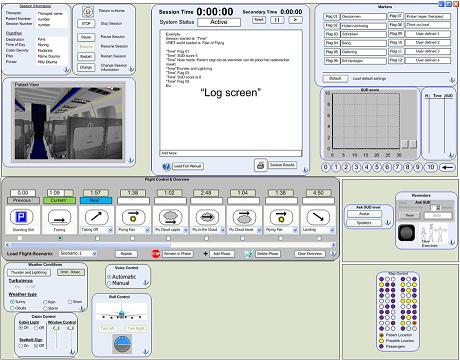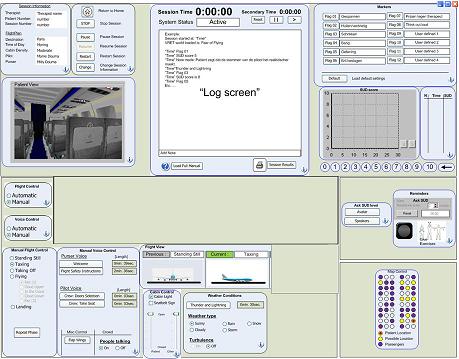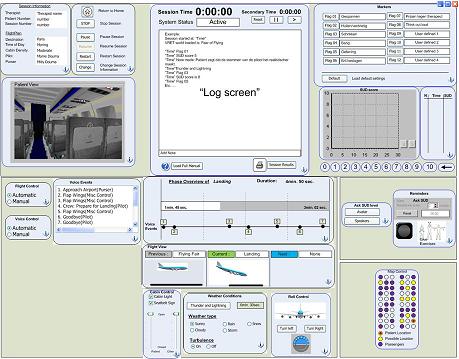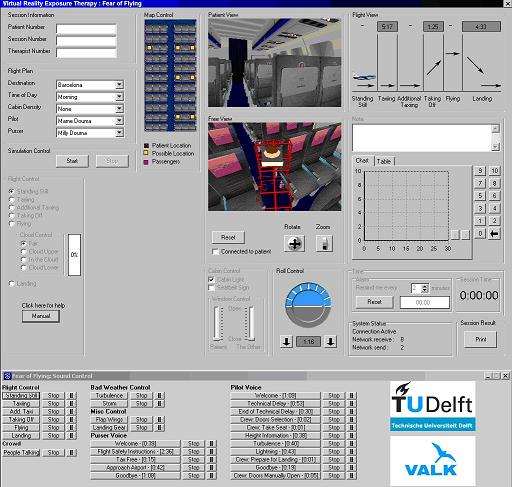Difference between revisions of "Generic therapist user interface"
| Line 21: | Line 21: | ||
==== Prototype number 2 ==== | ==== Prototype number 2 ==== | ||
[[Image:Prototype2manualkl.jpg|left|frame|Prototype nr. 2 in manual mode]] | [[Image:Prototype2manualkl.jpg|left|frame|Prototype nr. 2 in manual mode]] | ||
| − | [[Image:Prototype2autokl.jpg|frame | + | [[Image:Prototype2autokl.jpg|frame|Prototype nr. 2 in automatic mode]] |
==== Prototype number 3 ==== | ==== Prototype number 3 ==== | ||
[[Image:Prototype3manualkl.jpg|left|frame|Prototype nr. 3 in manual mode]] | [[Image:Prototype3manualkl.jpg|left|frame|Prototype nr. 3 in manual mode]] | ||
| − | [[Image:Prototype3autokl.jpg | + | [[Image:Prototype3autokl.jpg|frame|Prototype nr. 3 in automatic mode]] |
==== Current User Interface Fear of Flying ==== | ==== Current User Interface Fear of Flying ==== | ||
[[Image:Vliegtuigkl.jpg|left|frame|Current User Interface of Fear of Flying]] | [[Image:Vliegtuigkl.jpg|left|frame|Current User Interface of Fear of Flying]] | ||
Revision as of 17:43, 8 June 2009
Guntur Sandino
Human-Computer Interaction
Contents
Project
Description: Designing a Generic Therapist User Interface for the VRET system
Introduction
The use of Virtual Reality (VR) technology to support the treatment of patients with phobia (e.g. fear of heights, fear of flying, social phobia) is getting considerable research attention, and a small number of clinics in the Netherlands are already using this technology on a day-to-day basis. Still, most research in this area only focuses on the patient side of the system, on factors such as navigation through the VR world, the feeling of presence, or the effectiveness of the treatment. Far less attention is given to the therapist’s side of the system. From their console therapists have to control the VR experience of the patient. For example, treating patients for their fear of flying, therapists have to control the behaviour of the airplane (taxiing, taking off, weather conditions, announcements by the pilot, and turbulence). The therapists’ confidence in using the system is seen as an important factor to get this type of treatment more accepted by therapists in clinics. Special attention therefore should be given to the usability of therapists’ user interface.
The work performed during this project is a first step towards potential improvements of the therapists’ user interface. First the therapists were analyzed using a Virtual Reality Exposure Treatment (VRET) system in a clinic when treating patients for their fear of flying. Second the results of the analysis were used to design three prototypes, that were evaluated by the therapists. Third and final step is to design a final prototype with a generic design that can be used for the whole VRET system.

